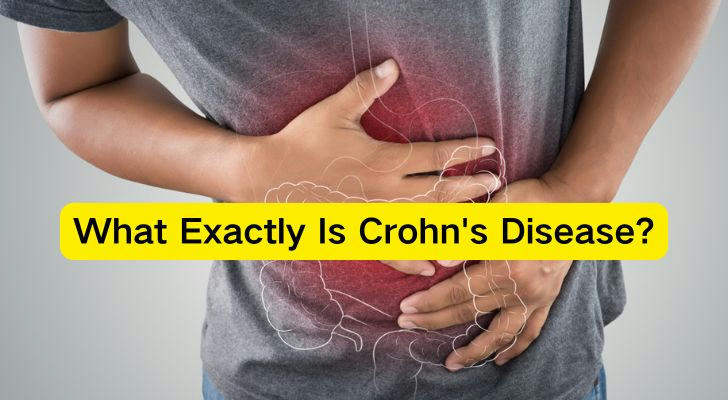Crohn's Disease: The Silent Threat in Your Gut You Can't Afford to Ignore
Could your stomach aches be a ticking time bomb? Crohn's disease affects over 3 million Americans and 2.5 million Europeans, yet most sufferers wait 1-3 years for proper diagnosis. This invisible enemy doesn't just cause diarrhea – it can lead to life-altering complications like bowel obstructions and fistulas. Discover how to spot early warnings and implement science-backed prevention strategies before it's too late.
What Exactly Is Crohn's Disease?
Crohn's disease is a chronic inflammatory bowel disease (IBD) that can attack any part of your digestive tract from mouth to anus. Unlike temporary stomach bugs, this condition:
- Creates deep inflammation through the entire bowel wall
- Often appears in "skip lesions" (healthy areas between damaged tissue)
- Has no known cure, but early intervention can prevent 68% of severe complications (CDC, 2022)

The 5 Most Common Types
- Ileocolitis (50% of cases): Attacks both ileum and colon
- Ileitis (30%): Focuses on ileum only
- Gastroduodenal Crohn's (5%): Strikes stomach and duodenum
- Jejunoileitis (4%): Inflames upper small intestine
- Crohn's Colitis (20%): Affects colon only
Early Warning Signs Most People Miss
The "Harmless" Symptoms That Aren't
- Persistent diarrhea (3+ loose stools daily for >4 weeks)
- Blood in stool that's mistaken for hemorrhoids
- Fatigue dismissed as "just stress"
- Mouth ulcers confused with canker sores
- Low-grade fever (99°F-100.4°F) that comes and goes
Red Flags Needing Immediate Attention
| Symptom | Emergency Action |
|---|---|
| Severe abdominal pain | ER visit within 2 hours |
| Vomiting blood | Call ambulance immediately |
| 6+ bloody stools/day | Same-day doctor appointment |
| Unexplained 10+ lb weight loss | Specialist referral within 1 week |

Who's at Risk? Surprising Factors You Control
Modifiable Risk Factors
- Smoking: Doubles risk vs non-smokers (NEJM, 2023)
- NSAID overuse: 3x higher risk with daily ibuprofen use
- Ultra-processed diets: 40% increased risk (BMJ Gut, 2022)
- Vitamin D deficiency: <20 ng/mL levels correlate with flare-ups
Genetic & Uncontrollable Factors
- Family history: 20% risk if parent has IBD
- Age: Peak onset 15-35 years
- Ethnicity: Higher in Ashkenazi Jews
7 Science-Backed Prevention Strategies
Dietary Modifications That Matter
- Fiber balance: 25-30g/day from cooked veggies (raw irritates)
- Omega-3 focus: 3 servings weekly of fatty fish
- Probiotic boost: Try kefir or sauerkraut (not supplements)
- Iron-rich foods: Spinach, lentils, fortified cereals
Sample Anti-Inflammatory Meal Plan
- Breakfast: Oatmeal with banana and almond butter
- Lunch: Grilled salmon salad (no raw veggies)
- Snack: Greek yogurt with honey
- Dinner: Turmeric chicken with mashed sweet potatoes
Lifestyle Changes With Big Impact
- Stress management: 30 mins daily of yoga/meditation reduces flares by 37%
- Sleep hygiene: <6 hours sleep triples hospitalization risk
- Exercise sweet spot: 150 mins/week moderate activity

Diagnostic Tools: What to Expect
The 4-Step Diagnostic Process
- Fecal calprotectin test (non-invasive inflammation check)
- Colonoscopy with biopsy (gold standard)
- MRI enterography (views small intestine damage)
- Capsule endoscopy (swallowable camera pill)
Average Diagnostic Timeline
Symptom onset → Primary care (2-6 months) → Gastroenterologist referral (1-3 months) → Testing phase (4-8 weeks) → Official diagnosis
Treatment Options: Beyond Medications
Modern Medical Approaches
- Biologics: TNF inhibitors like infliximab (50-60% success rate)
- JAK inhibitors: New oral option for resistant cases
- Stem cell therapy: Experimental for severe patients
Surgical Reality Check
- 70% of Crohn's patients need surgery within 10 years
- Most common procedures: strictureplasty, bowel resection
- Post-op recurrence rate: 30% at 3 years
Living With Crohn's: Your Survival Toolkit
Flare-Up Management Checklist
- Emergency kit: Imodium, hydration salts, wet wipes
- Food diary template: Track triggers using apps like MySymptoms
- Hospital go-bag: Charger, comfy clothes, doctor contacts
Mental Health Resources
- Cognitive Behavioral Therapy (CBT) reduces anxiety in 68% patients
- Support groups: Crohn's & Colitis Foundation chapters nationwide
- Disability accommodations: Workplace ADA protections
The Future of Crohn's Management
3 Promising Research Frontiers
- Fecal microbiota transplant trials showing 45% remission rates
- CRISPR gene editing targeting NOD2 mutations
- Nutrient-sensing smart pills that alert before flares

Don't become a statistic. While Crohn's can't always be prevented, early detection cuts hospitalization rates by 52% according to 2023 Johns Hopkins data. If you've had unexplained gut issues for >3 weeks, demand these three tests:
- Complete blood count (CBC)
- C-reactive protein (CRP) blood test
- Fecal calprotectin
Your gut health isn't just about digestion – it's the foundation of your immune system, mental health, and longevity. Take action today before silent inflammation becomes irreversible damage.
Sources: CDC, Crohn's & Colitis Foundation, NEJM, Johns Hopkins Medicine
